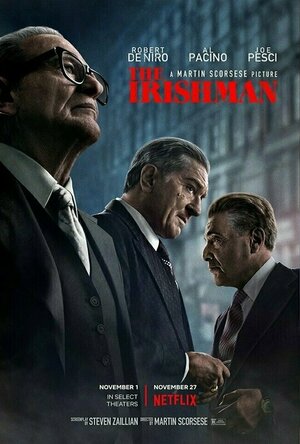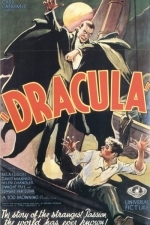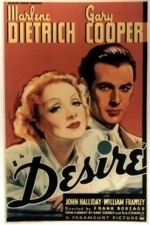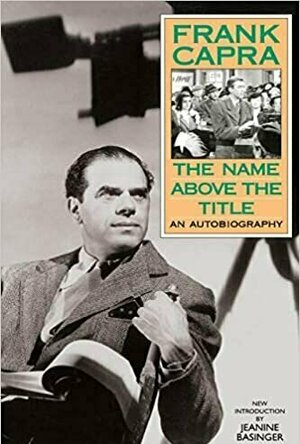
The Name Above The Title
Book
Although Frank Capra (1897-1991) is best known as the director of It Happened One Night, Mr. Deeds...

The Story of Film
Book
An updated edition of the most accessible and compelling history of the cinema yet published, now...
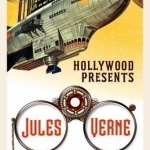
Hollywood Presents Jules Verne: The Father of Science Fiction on Screen
Book
Even for those who have never read Jules Verne (1828--1905), the author's very name conjures visions...
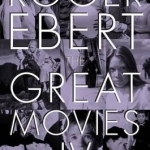
The Great Movies Iv
Book
No film critic has ever been as influential or as beloved as Roger Ebert. Over more than four...

Animation: A World History: Volume I: Foundations - The Golden Age
Book
A continuation of 1994's groundbreaking Cartoons, Giannalberto Bendazzi's Animation: A World History...
BankofMarquis (1832 KP) rated The Irishman (2019) in Movies
Nov 30, 2019
There is a terrific film in this 3 1/2 hour epic - if only "Marty" would have trimmed the fat to find it.
Telling the real-life story (with some conjecture and fabrications), THE IRISHMAN tells the tale of...well...Irishman Frank Sheeran (Robert DeNiro) a working stiff who rises in the ranks of mobster Russell Buffalino (Joe Pesci) to be one of his chief enforcers and the personal bodyguard to Jimmy Hoffa (Al Paciino).
In the lead, DeNiro commands the screen like the DeNiro of old. His Frank Sheeran is menacing, razor-focused on his objectives. You never question Frank's loyalties and his ability to keep silent. DeNiro shows this by be being silent for a good part of this film, even though he is on screen for most of it. He is a commanding force that requires that we pay attention to him.
It was good to see Pesci back onscreen as Russell Buffalino. His mob boss is pragmatic, making decisions sternly and expecting his people to follow them, no questions asked. His presence on the screen is almost as commanding as DeNiro's and I wouldn't be surprised to see DeNiro (Best Actor) and Pesci (Best Supporting Actor) be in the mix come Oscar time.
In lesser, (almost cameo), roles - but faring very well - is a "who's who" of character actors, Harvey Keitel (who I would have LOVED to have seen much, much more in this film), Ray Romano, Bobby Canavale, Jesse Pleimens and Anna Paquin, I'm sure all jumped at the chance to appear - however briefly - in a Scorsese mob epic.
Faring less well in this film is Al Pacio as Jimmy Hoffa. He is back to his "yelling Al Pacino" ways of films like SCENT OF A WOMAN. His Hoffa is pretty one note and, consequently, his scenes with DeNiro are ineffective mostly because Pacino is chewing up the scenery (and yelling) while DeNiro is sitting silent and staring and listening to Pacino. This was a major disappointment for me, but (fortunately), Hoffa is in only about 1/3 of this long film, so while it hampered my enjoyment of the film, it didn't ruin it.
Credit (and blame) for all of this goes to master Director Martin Scorsese who has mined these waters more successfully in CASINO, THE DEPARTED and GOODFELLAS (his best film, IMO). This film is a loving pastiche to these types of films and a bygone era - and he chose to make it for NETFLIX for he wanted to make a sprawling epic and take his time in telling the story he wanted to tell. This is evidenced in the 3 1/2 hour length of this film, which if filled with long tracking shots set to a backdrop of Italian crooners singing old standards. It's a throwback to a different time and place, one that these players know well.
Scorsese has stated the he only decided to make this film because the "de-aging" software the he used to make DeNiro and Pesci look 30 years younger was "good enough" to use. And I would agree with that statement. The de-aging of these 2 (and others) is "good enough", in some scenes I forgot I was watching a de-aged DeNiro and Pesci, while in some other scenes, I could spot the trick. Again, it was "good enough" and not distracting (unless you were looking to make it distracting, then you probably found what you were looking for).
But for me - a fan of these types of films, I was not disappointed. It was about what I expected it to be. If you were looking for something different and new, look elsewhere, you will be disappointed.
Letter Grade: B+
8 stars (out of 10) and you can take that to the Bank(OfMarquis)
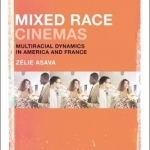
Mixed Race Cinemas: Multiracial Dynamics in America and France
Book
Using critical race theory and film studies to explore the interconnectedness between cinema and...

Italian Style: Fashion & Film from Early Cinema to the Digital Age
Book
This is the first in-depth, book-length study on fashion and Italian cinema from the silent film to...
LeftSideCut (3776 KP) rated Dracula (English) (1931) in Movies
Jul 6, 2020
Bela Lugosi is Dracula, and though there have been fine portrayals of the titular vampire since, his performance lay the ground work for how a lot of media realise vampires to this day. He cuts a striking figure, he's suave and sinister, and the thick European accent is paramount to how he made Dracula a classic.
I first saw Dracula when I was a kid, and having watched it again recently, it's still a striking experience. While there may not be anything inherently frightening or scary by today's standards, the old black and white style, paired with long moments of uncomfortable silence (Director Tod Browning has exclusively worked on silent films before this), make for a suitably eerie atmosphere.
It's obviously a film that shows it age, but still hasn't lost any of it's charm. The version I watched recently was a Blu Ray restoration, and it's clear how lovingly that restoration has been implemented. Watching a film from the 30s look so crystal clear is something special.
